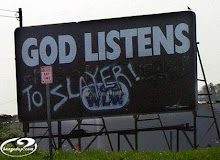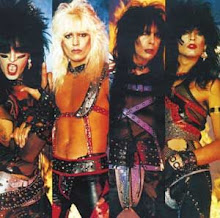I care not what, so it be wholesome food.
GRUMIO
What say you to a neat's foot?
KATHARINA
'Tis passing good: I prithee let me have it.
GRUMIO
I fear it is too choleric a meat. How say you to a fat tripe finely broil'd?
KATHARINA
I like it well: good Grumio, fetch it me.
GRUMIO
I cannot tell; I fear 'tis choleric.What say you to a piece of beef and mustard?
KATHARINA
A dish that I do love to feed upon.
GRUMIO
Ay, but the mustard is too hot a little.
KATHARINA
Why then, the beef, and let the mustard rest.
GRUMIO
Nay then, I will not: you shall have the mustard,
Or else you get no beef of Grumio.
KATHARINA
Then both, or one, or any thing thou wilt.
GRUMIO
Why then, the mustard without the beef.
KATHARINA
Go, get thee gone, thou false deluding slave,
Beats him
That feed'st me with the very name of meat:
Sorrow on thee and all the pack of you,
That triumph thus upon my misery!
Go, get thee gone, I say.
Enter PETRUCHIO and HORTENSIO with meat
PETRUCHIO
How fares my Kate? What, sweeting, all amort?
HORTENSIO
Mistress, what cheer?
KATHARINA
Faith, as cold as can be.
PETRUCHIO
Pluck up thy spirits; look cheerfully upon me.
Here love; thou see'st how diligent I am
To dress thy meat myself and bring it thee:
I am sure, sweet Kate, this kindness merits thanks.
What, not a word?
Nay, then thou lovest it not;
And all my pains is sorted to no proof.
Here, take away this dish.
KATHARINA
I pray you, let it stand.
PETRUCHIO
The poorest service is repaid with thanks;
And so shall mine, before you touch the meat.
KATHARINA
I thank you, sir.
HORTENSIO
Signior Petruchio, fie! you are to blame.
Come, mistress Kate, I'll bear you company.
GRUMIO
What say you to a neat's foot?
KATHARINA
'Tis passing good: I prithee let me have it.
GRUMIO
I fear it is too choleric a meat. How say you to a fat tripe finely broil'd?
KATHARINA
I like it well: good Grumio, fetch it me.
GRUMIO
I cannot tell; I fear 'tis choleric.What say you to a piece of beef and mustard?
KATHARINA
A dish that I do love to feed upon.
GRUMIO
Ay, but the mustard is too hot a little.
KATHARINA
Why then, the beef, and let the mustard rest.
GRUMIO
Nay then, I will not: you shall have the mustard,
Or else you get no beef of Grumio.
KATHARINA
Then both, or one, or any thing thou wilt.
GRUMIO
Why then, the mustard without the beef.
KATHARINA
Go, get thee gone, thou false deluding slave,
Beats him
That feed'st me with the very name of meat:
Sorrow on thee and all the pack of you,
That triumph thus upon my misery!
Go, get thee gone, I say.
Enter PETRUCHIO and HORTENSIO with meat
PETRUCHIO
How fares my Kate? What, sweeting, all amort?
HORTENSIO
Mistress, what cheer?
KATHARINA
Faith, as cold as can be.
PETRUCHIO
Pluck up thy spirits; look cheerfully upon me.
Here love; thou see'st how diligent I am
To dress thy meat myself and bring it thee:
I am sure, sweet Kate, this kindness merits thanks.
What, not a word?
Nay, then thou lovest it not;
And all my pains is sorted to no proof.
Here, take away this dish.
KATHARINA
I pray you, let it stand.
PETRUCHIO
The poorest service is repaid with thanks;
And so shall mine, before you touch the meat.
KATHARINA
I thank you, sir.
HORTENSIO
Signior Petruchio, fie! you are to blame.
Come, mistress Kate, I'll bear you company.
This interaction between Grumio (the servant) and Kate illustrates the comedic nature of the play by presenting Grumio as a character who likes to provoke ridiculous arguments and Kate as a very atypical woman of this time period (a "shrew") who also displays some ridiculous behavior herself. The argument at hand here begins with Kate, never living a day of her life in poverty between growing up in the home of her wealthy father to now being courted the wealthy Petruchio, complaining how she was taken away from her wealthy home and married only to be starved by her new husband. In relation to the length of the act and the play itself, this back-and-forth argument (where the two reach no significant consensus) between Grumio and Kate over something as trivial as beef is very lengthy and gives the play a comic tone by showing the ludicrous behavior that is hardly ever displayed in this society by a rich woman such as Kate.
Commentary on the Genre of Comedy
Shakespearean comedies, while they are obviously of a totally different nature from tragedies and histories in which the entire play is presented on such a dark and depressing note, do not really fit the typical definition of "comedy" that we know today, which usually involves stories that provoke actual laughter and are often of a more outward, obviously funny nature than those written by Shakespeare. The element of Shakespearean comedy that definitely sets it apart most from the other genres is the far lighter mood and ending that does not involve the murder or suicide of every major character. Often the subject of comedy in these plays involves courtship, so the focus is on love rather than death. The plays also come with a lighthearted nature that is brought to the audience through ludicrous scenarios that simply offer an enjoyable story that does not provoke any extreme emotion or require any deep, serious thought.
Personal Reflection
I would absolutely consider the genre of comedy to be my favorite Shakespearean genre, with The Taming of the Shrew being my favorite play that we have read this year. When I found out that we were being assigned something written by Shakespeare that did not involve hundreds of pages of death, destruction, murder, suicide, bloody violence, and suicide, it brought me a huge sense of relief. The reason why I had a negative predisposition to Shakespeare when we first started reading the plays in class is because I had formerly only known the story lines of Romeo and Juliet and Hamlet, both of which I found to be annoyingly and unnecessarily repetitive in their horrific events that take place throughout the entire play, and both of them I found to have extremely disappointing endings. The Taming of the Shrew and A Midsummer Night's Dream, gave me a much-needed break from the tragedy I had known as Shakespeare and actually gave me something enjoyable to read. As for the story itself, I knew right away that I would enjoy the story because the first scene starts out with cross-dressing. Typically, I don't find cross-dressing to be particularly funny, but the fact that it was found in a play that was written in the 1500's I found hilarious. In addition, while I didn't find the actual concept of the "shrew" of a woman to be funny compared to the things in today's world that are funny, the fact that these sorts of things WERE a subject of comedy in Shakespeare's time made me approach it with the attitude that it would be a comedic and enjoyable story, and it helped me to appreciate the play much more.

